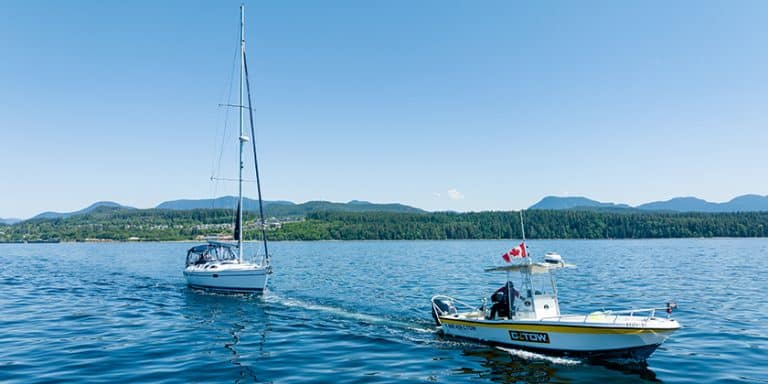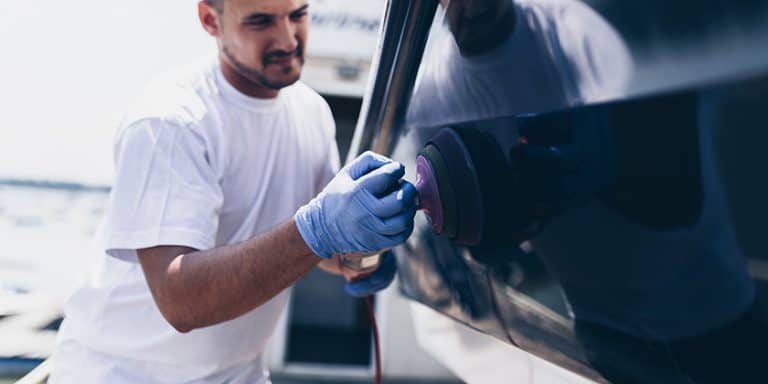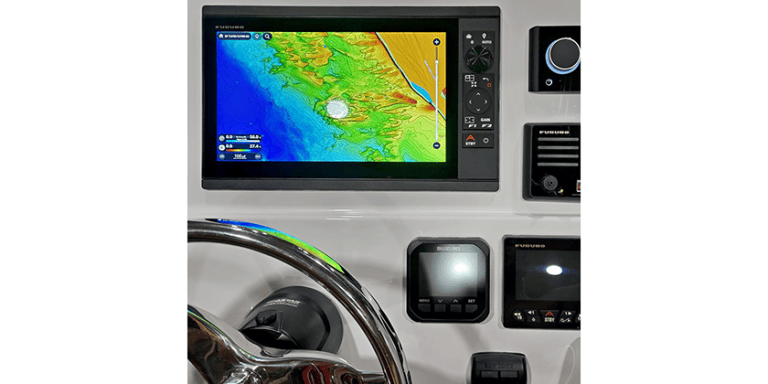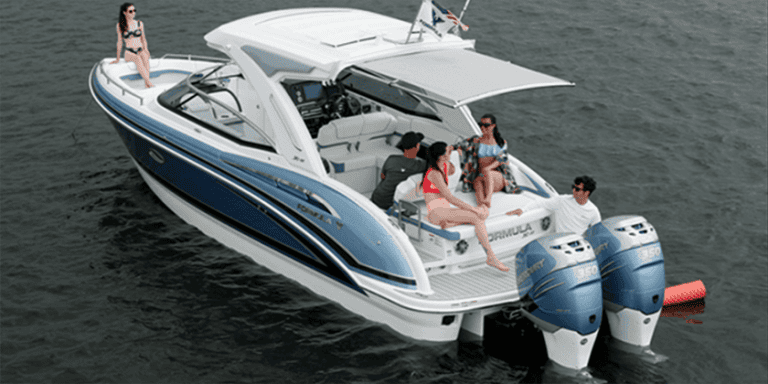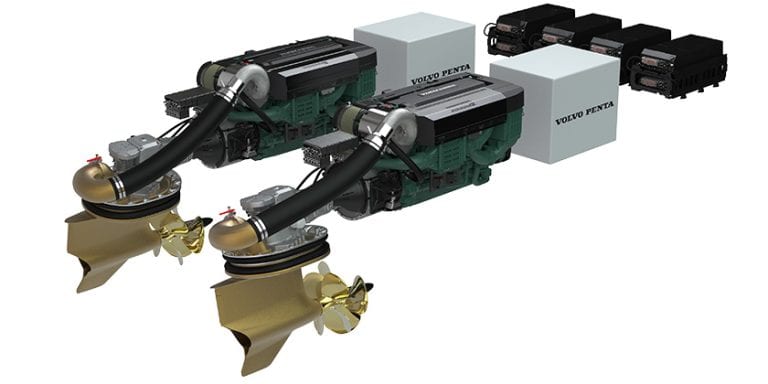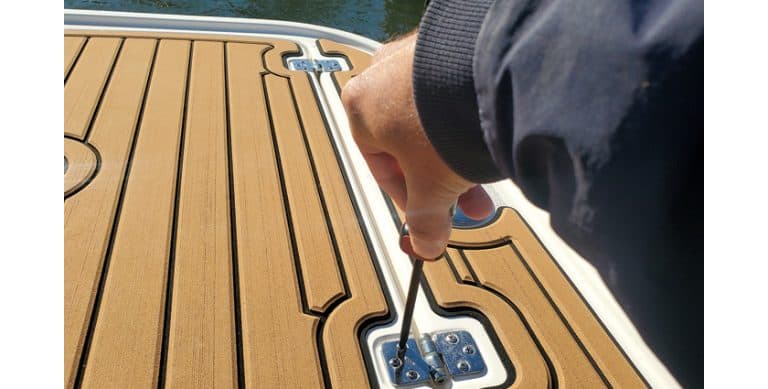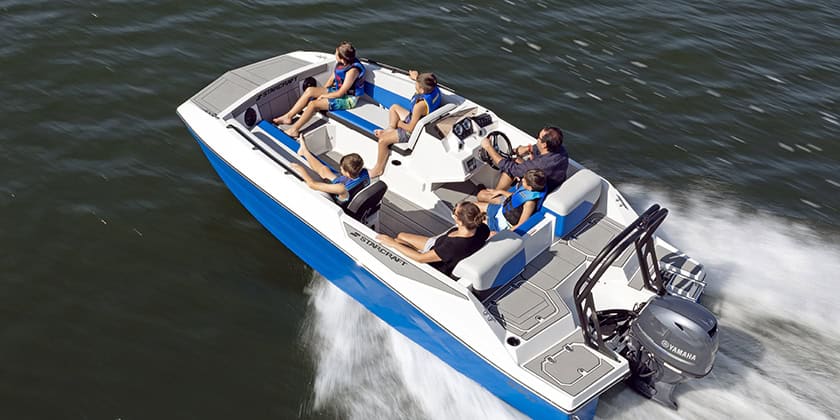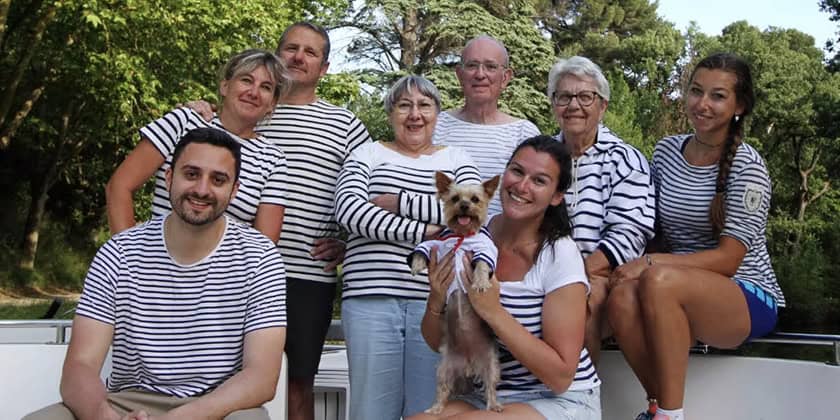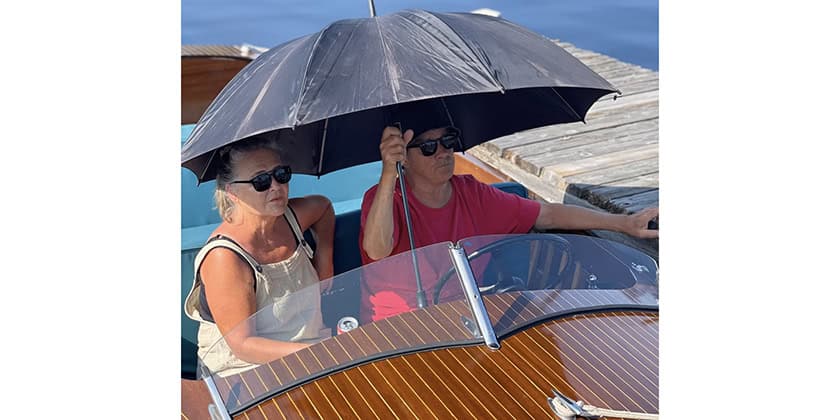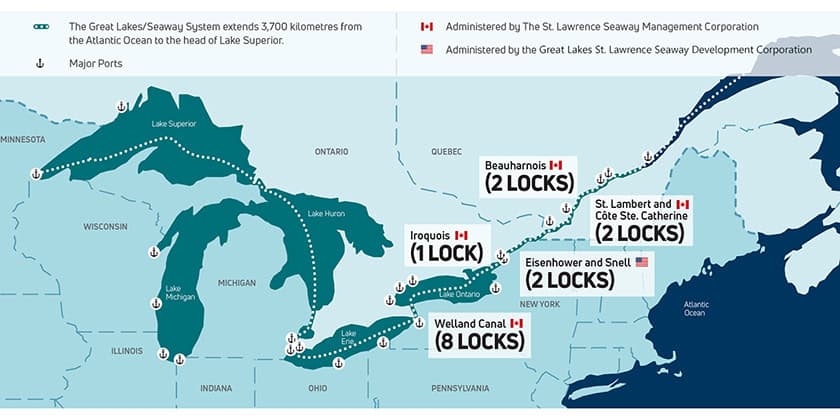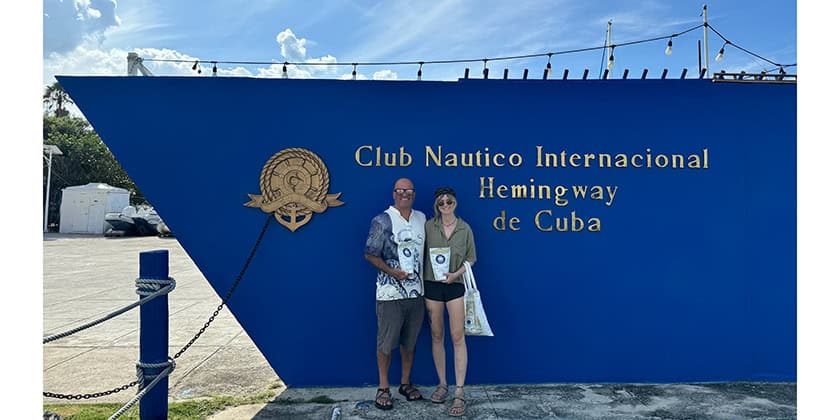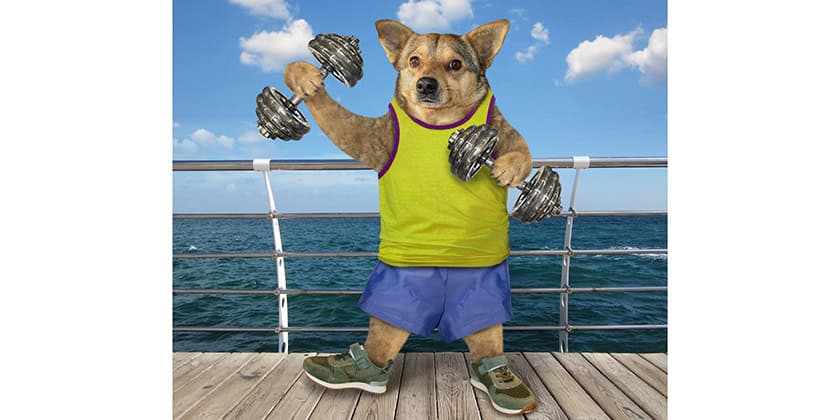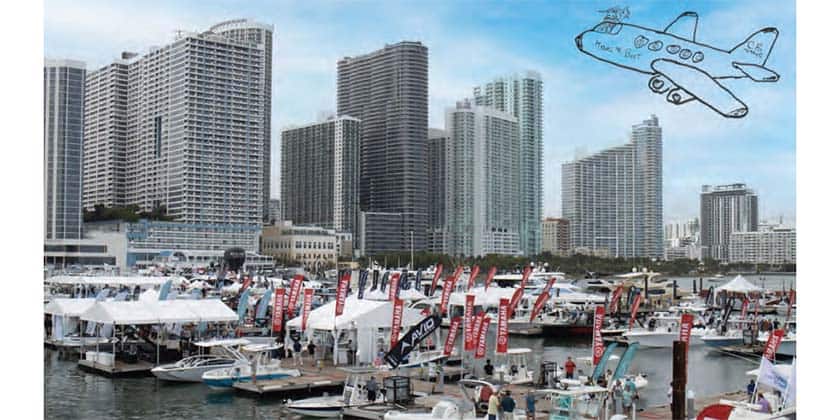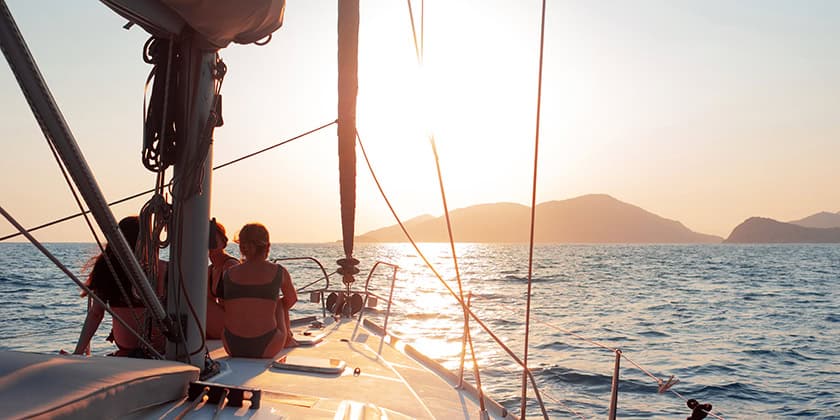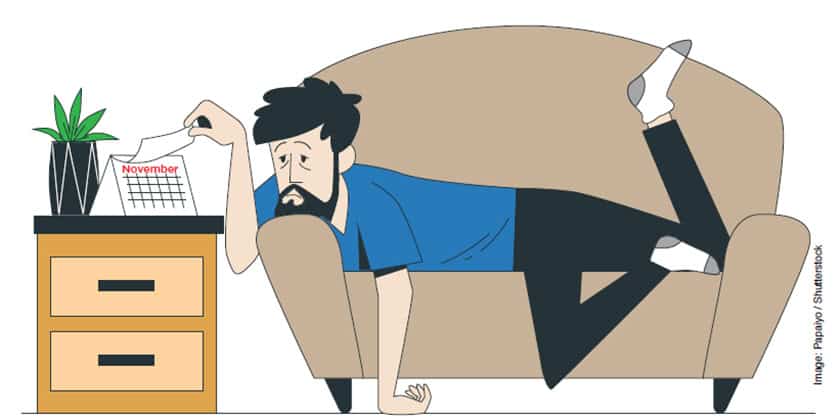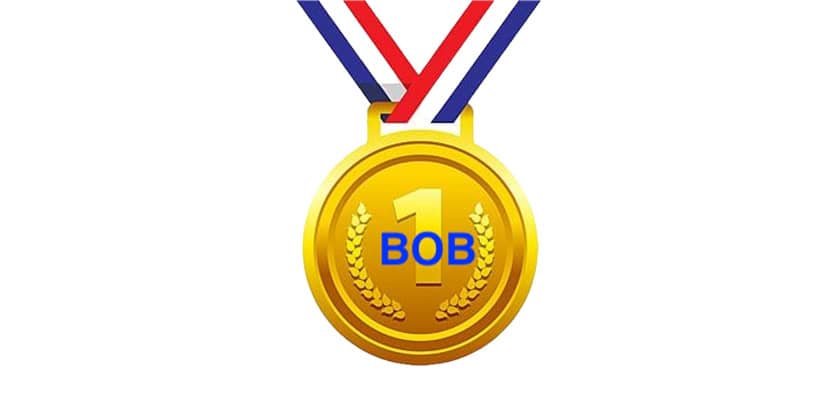The VHF (Very High Frequency) Marine Radio
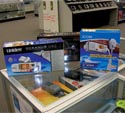
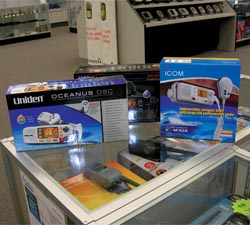 Nov 14, 2009
Nov 14, 2009
I often get asked how to best call for help if I have a problem when out on the water. Do I use my cell phone or should I have a VHF Marine Radio? The simple answer is that both may do the job depending on the circumstances but there are limitations. The cell phone has to be in range of a tower to forward the signal. A cell phone will contact only one person at a time and how often do you make a call only to get an answering machine or voice mail at the other end?
How helpful will this be if you need assistance right away?
A VHF Marine Radio also has its limitations but, depending on your location, the Coast Guard and other vessels and marinas in your vicinity may be monitoring your call. Immediate help might only be a few minutes away so, for now, let’s focus on the use of VHF Marine Radios.
In Canada, a certificate called the Restricted Operator Certificate (Maritime) (ROC (M)) is required by all people who operate a VHF, HF (high frequency) or MF (medium frequency) Marine Radio, either a handheld or permanently fixed set.
This certificate is good for life and can be applied for after completing a classroom or home study course, successfully passing a test and submitting an application. The test contains 60 multiple choice questions and 3 questions that must be answered orally. Currently the program for the ROC (M) is managed and operated for Industry Canada under a letter of authority from the Minister, by the Canadian Power & Sail Squadrons (CPS). The program is offered coast to coast in both official languages. The certificate comes in the form of a plastic card very similar to a charge card and if lost or stolen, can be replaced by placing a no charge phone call.
The cost of a classroom course including the test and card is typically $60 to $90 dollars. The cost of a training manual and interactive CD for home study is $25 and the processing fee for the application, which includes mailing the card direct to the applicant, is $18. The cost for replacing a lost or stolen card is also $18.
Here are a few typical questions people have about VHF radio:
Q – A number of years ago I needed a license called a Station License which was issued annually by Industry Canada. Do I still need one now?
A – The answer is no. Station licenses are no longer required for voluntarily fitted Canadian vessels operating in Canadian waters. Voluntarily fitted vessels include all recreational vessels and commercial fishing vessels under 8 meters in length.
Q – Do I need a Station License when I take my vessel into US waters?
A – Here the answer is not so simple. US citizens operating US registered vessels in US waters also do not require a Station License. However, Canadians taking their vessels into international waters are required to get at least a temporary Station License. Therefore, I highly recommend that you treat a visit to US waters the same way you would a trip into any international waters and apply to Industry Canada for a Station License. The cost will be about $40 annually. With the Station License you will also be given an official “Call Sign” that you will use to identify yourself or it can be used if someone is trying to reach you.
It is also strongly recommended that when you leave for such a trip, that you file a Trip Plan with your family or someone you trust so that in the event of an emergency, or if you don’t return at a specified time, the Coast Guard can be asked to look for you.
Before proceeding, let’s look at the above question from the US perspective. Unlike in Canada, US operators are not required to have an operator’s certificate in the US. So, what happens when US boaters visit Canadian waters?
The US FCC regulations require them to have a Station License when traveling outside US waters – this includes Canadian waters. For the first 45 days continuous US boaters are only required to meet their federal and individual state regulations, however, after the 45 days they are required to meet all Canadian regulations and this includes having an operator’s certificate. Since you have to be a Canadian citizen or landed immigrant to obtain a Canadian operator certificate, a ROC (M), US citizens will have to obtain a US VHF radio operator certificate.
One of the latest advances in VHF Marine Radio technology is what is called Digital Selective Calling (DSC). This allows you, at the push of a button, to send a digital emergency message direct to the Coast Guard and other vessels equipped with DSC who might be close by. This message will clearly identify you, your vessel and your exact location using a Global Positioning (GPS) unit that is directly connected to your radio. This can save valuable minutes while you are trying to attend to the safety of your passengers and vessel. Most radios made after 1999 have DSC capability and this is now beginning to be offered on some handheld VHF Marine Radios.
When you take a classroom course or home study, you will find out how to use your radio properly, ; how to send emergency, urgent or safety messages, how to reach a marina or simply talk to another vessel that you are traveling with. It is very important that you clearly understand how your VHF radio operates and how to best use it and take advantage of it as an important communications and safety tool.
In the written course material and interactive CD you will also learn about the Global Maritime Distress and Safety System (GMDSS) of which the VHF Marine Radio with DSC is a key part. You will also be given a table of transmitting frequencies and where in Canada they can be used. You will be given information about applicable Federal Statutes and the Contraventions Act, time zone comparisons, a sample of the Radio Station License (if required) and exemptions, a list of possible penalties and fines for improper use, safety information, a list of regional and district Industry Canada offices and information about United States Homeland Security requirements. All in all this is a very comprehensive training manual, interactive CD and course.
Q – I have a VHF radio with DSC (Digital Selective Calling) on my boat. Can I get my MMSI (Maritime Mobile Service Identity) number from Canadian Power & Sail Squadrons?
A – The answer is no. Here is a statement from Industry Canada’s web site regarding the procedure for obtaining your MMSI:
“Industry Canada (IC), as the radio licensing body in Canada, is responsible for the issuance and management of the MMSIs. To obtain an MMSI, the applicant must contact their nearest IC office [see Radio communication Information Circular 66 (RIC-66), Addresses and Telephone Numbers of Regional and District Offices, for addresses of various district offices] and provide the necessary vessel or coast station details. Vessel owners must also provide specific information regarding installed radio equipment and emergency contacts in the case of an emergency. If the vessel is not currently licensed nor exempted from licensing, a radio licence will also be required. It should be noted that vessels not requiring a radio licence may still be issued an MMSI.
In an effort to provide more efficient services in areas of higher demand (such as on Canada’s east and west coasts), some of IC’s offices are able to provide these numbers immediately over the counter, provided you can supply vessel and associated information. In all cases, regardless of the IC office with which the applicant is dealing, every effort will be made to ensure the MMSI is issued as quickly as possible.
All information collected, is entered into IC’s National Maritime Information Database (NMID) and is forwarded to the ITU for inclusion in the Maritime-mobile Access and Retrieval System (MARS) which currently serves as a temporary repository of International Maritime Information at the ITU. Information contained in the NMID can be accessed via the internet through Industry Canada’s Strategis web site. This information is used by the Canadian Coast Guard (CCG) and related search and rescue agencies in the case of an emergency. While the CCG and related search and rescue agencies have access to the full set of information collected, the general public does not have access to emergency contact information in either the NMID or MARS.”
For more complete information go to www.ic.gc.ca. At the bottom of the left hand column on Industry Canada’s Home page there is a search box. Type in MMSI and hit go. You will find information on the MMSI, application procedures, application forms and a list of the regional offices across Canada in a downloadable PDF format.
I hope that you have begun to see the value in having and being able to operate a VHF Marine Radio. For complete details about the operation of VHF Marine Radios and the Maritime Radio Course contact your local Canadian Power & Sail Squadron, visit the CPS web site at www.cps-ecp.ca or call 1 888 CPS BOAT (277 2628).
UPDATE:
NOTE: Regulations have been updated and as of September 1, 2000, Industry Canada delegated the examination and administration of the ROC-M certification program to Canadian Power and Sail Squadrons (CPS). Courses for this certificate are developed and delivered by private examiners and/or instructors associated with CPS. Application for this certificate can be obtained from CPS, and certificates are issued by CPS. Certificates are valid for life and there is no renewal requirement. No photograph of the holder is required, and there is no age or nationality restriction.
Additional information concerning this certificate can be obtained by telephoning CPS at 1-888-CPS-BOAT(1-888-277-2628) or by visiting its website at www.cps-ecp.ca.
The government website link is: https://www.ic.gc.ca/eic/site/smt-gst.nsf/eng/sf01014.html

